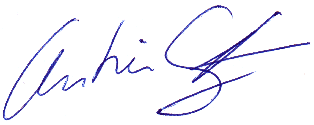|
Dear Readers,
This issue presents seven high quality papers covering a variety of
subjects from logic and classification to ontologies and linked data
to information technology for educational support.
D. Gaina et al. from Japan report on their research of
constructor-based logics, specifically on rules for the
constructor-based Horn logics formalized as institutions. In a
collaborative research from Saudi Arabia, Egypt and the USA
T. F. Gharib, N. Badr, S. Haridy and A. Abraham introduce their
research on the enhancement of ontology learning by a methodology for
enriching lexical ontologies. R.J.M. Hartog et al. from The
Netherlands report on the research of large-scale use of digital
learning resources in higher education. Research on a linked open data
approach in the e-science domain is reported by a research
collaboration of A. Latif from Germany, M.T. Afzal from Pakistan and
H. Maurer from Austria. M.-T. Martín-Valdivia et al. from Spain
contribute with their research on sentiment classification, precisely
on the effect of using neutral sample reviews found in an opinion
corpus in order to improve a sentiment polarity classification
system. J. Melero et al. from Spain give interesting insights of a
study reviewing constructivist learning methods with supportive tools
in ICT higher education.
The paper "The Educational Affordances of Widgets and Application
stores" by D. Griffiths et al. was originally submitted to the J.UCS
special issue on "Technology for Learning across Physical and Virtual
Spaces". According to the guest editors Delgado Kloos et al. the
submission was not at the center of the topic of the special
issue. However, the reviewers stressed the high quality of the paper
and recommended its publication in a regular issue. The paper
represents a relevant contribution to the understanding of the
pedagogical opportunities and challenges of interoperability
specifications and related technological developments.
Enjoy reading!
Cordially,

Christian Gütl, Managing Editor
Graz University of Technology, Graz, Austria
Email: cguetl@iicm.edu
Page 2203
|
